Diy Easy Way to Slide Heavy Furniture
1 / 14

Carry Tall Items High and Low
A tall dresser, filing cabinet or shelving unit is awkward to handle. Make it a two-person job. Tip the item backward at an angle and have one person carry the top while the other carries the bottom. This centers the weight and keeps the item from swinging out of control. Transporting the item up or down stairs is easier too, since the carrying angle will roughly match the slope of the stairs.
2 / 14
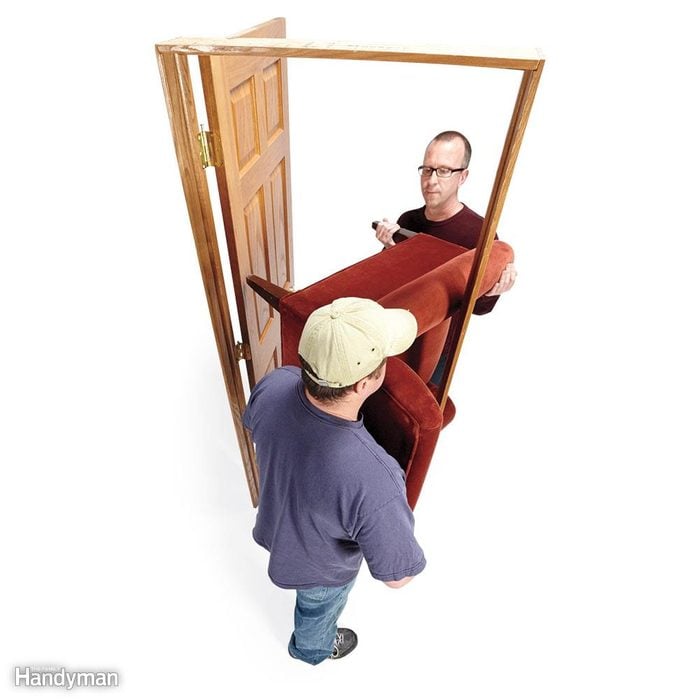
'Hook' Chairs Around Corners
A large easy chair can be the opposite of easy to move. Follow the example of pro movers and "hook" large chairs around corners. Turn the chair on its side so it looks like an "L" and move it back-first through the doorway. Then curl it (hook it) around the door frame and slip it through.
3 / 14

How to Move a Couch: Stand Couches on End
If you ever have to maneuver a couch down a hallway and through a door, you may find it almost impossible to carry it horizontally and make the turn into the room. Before you enter the hallway, place the couch on its end and slide it to the doorway. You'll almost always be able to hook it through the door. If it's a bit taller than the door opening, start the top away from the door and gain several inches of clearance.
4 / 14
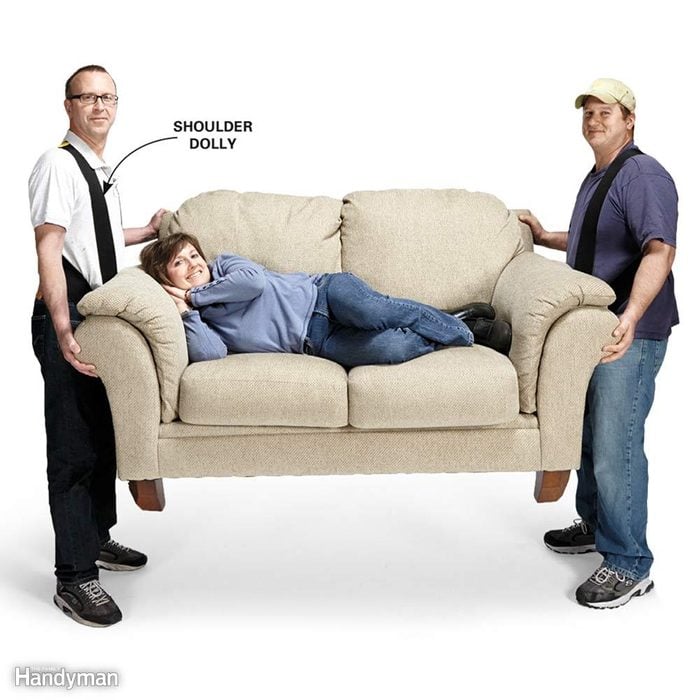
Furniture Carrying Straps: Shoulder Dolly
Moving and lifting straps (Shoulder Dolly, shown here, is one type) take the weight off your back by relying on leverage and large muscle groups. They also leave your hands free to maneuver awkward items. However, they can be tricky to use on stairs because the weight shifts completely to the downhill mover.
5 / 14
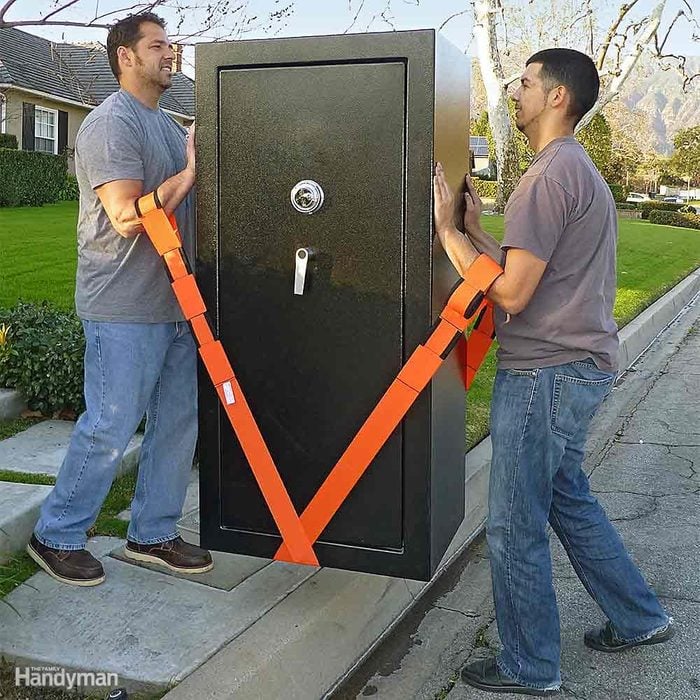
Furniture Carrying Straps
6 / 14
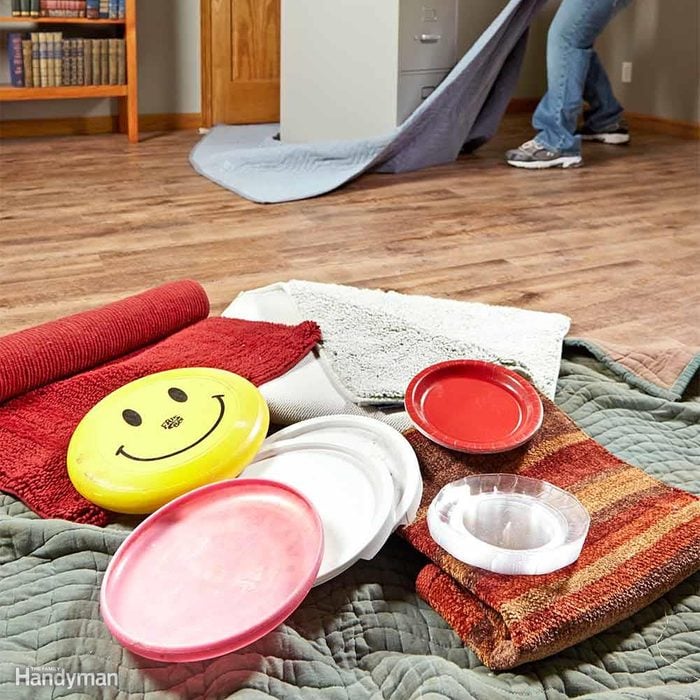
Don't Carry or Drag—Slide
You can buy furniture slides in many shapes and sizes at home centers and online. It's also easy to make your own sliders from plastic container covers, Frisbees, bedspreads, moving blankets, towels and carpet remnants. Use hard plastic sliders for carpeting, and soft, padded sliders for hard flooring.
7 / 14
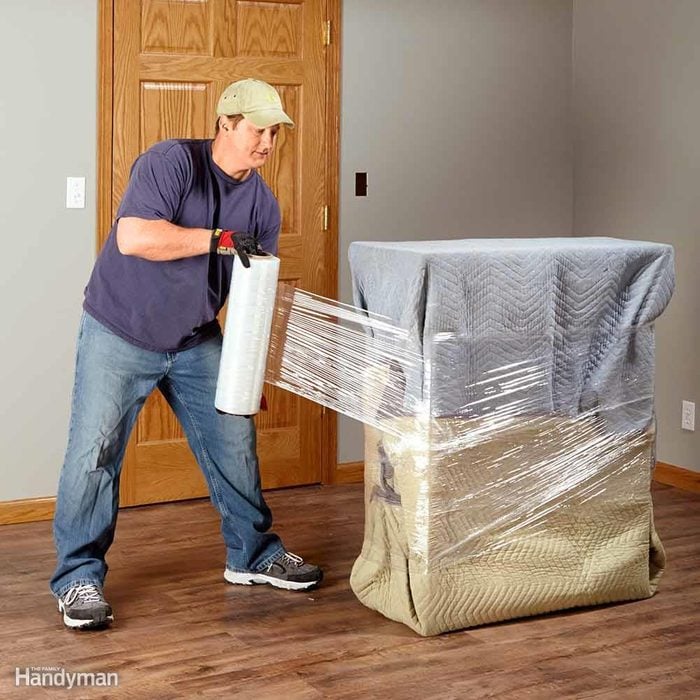
Protect Furniture With Blankets and Plastic
Moving blankets are invaluable for protecting the items you're moving as well as your house. Sure, renting them is cheap, but you can buy several for just a few dollars more at home centers or uhaul.com and always have them on hand. (You'll use them for all kinds of other things too.) To prevent damaging the finish and fragile edges of dressers, tables and other furniture, wrap the items completely with moving blankets and secure the blanket with stretch film. A 20-in. x 1,500-ft. roll of stretch film costs about $20 at home centers and moving outfitters.
8 / 14
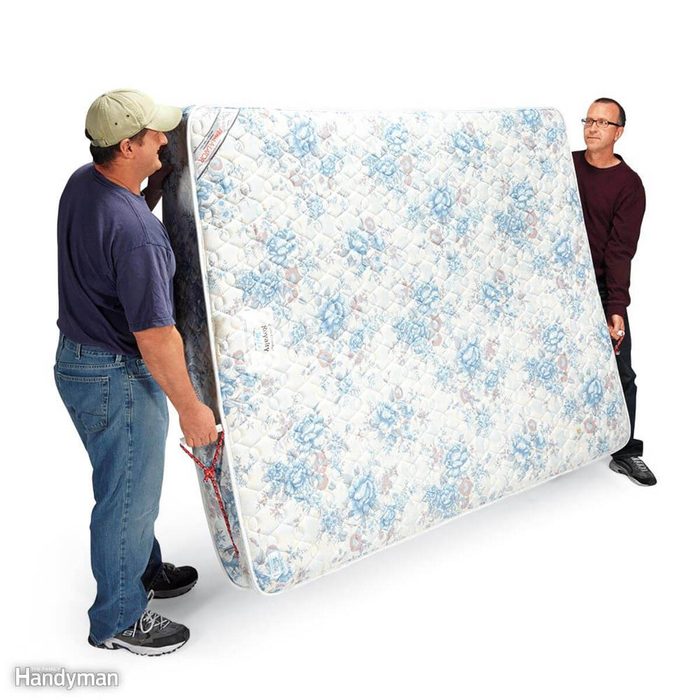
Make a Mattress Sling
Trying to wrestle a heavy, floppy mattress anywhere is tough. Many mattresses have handles, but they're not intended for carrying. They're actually made to help you position the mattress, so they're not very strong. Here's an easier way to carry a mattress: Make a simple rope sling that will give you and your helper a lot more control. Thread the rope through the mattress handles. Slip a 5-in. piece of 1-in. PVC pipe over the rope ends and then loop and tie each end to create a comfortable sling grip. Flip the mattress over so the sling is on the bottom and you're on your way.
9 / 14
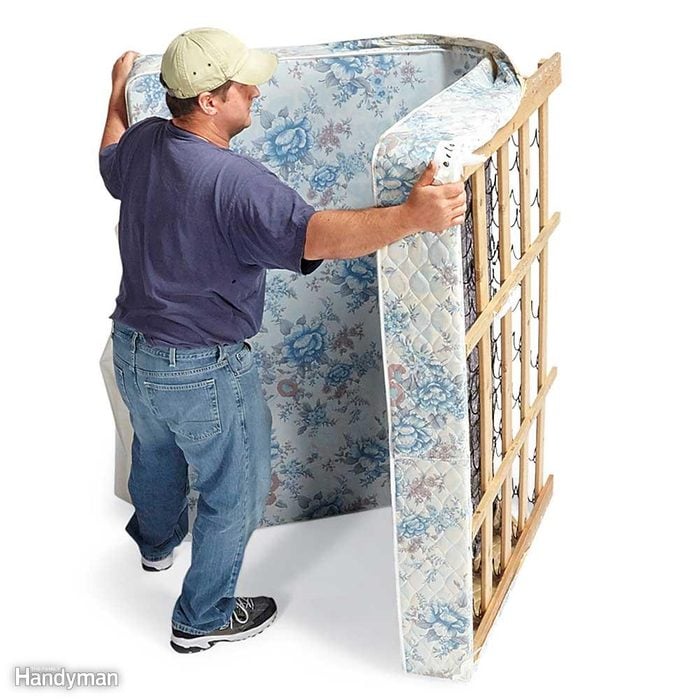
Cut and Fold a Box Spring
Is your box spring too big to fit in your stairway or around a tight corner? You could buy a "split" box spring designed specifically for this (and pay several hundred bucks) or cut your existing box spring and fold it so it fits. There's actually a simple, ingenious way to cut and fold your box spring without wrecking it. Remove the fabric covering (the most tedious part of this whole process is removing the staples) and place the box spring face down. Pull back the mattress cover along each side and cut through the frame just to the left or right of the middle crosspiece (don't cut through the crosspiece itself). Do this on both sides and in the center. You can now fold the box spring like a book as shown and move it. Secure it with a strap to prevent it from springing open. To put it back together, screw a 1x2 along the center crosspiece cuts and against the inside of the outer frame to reinforce them. Then staple the fabric covering back in place.
10 / 14

Plan Where It Lands
If you're moving to a new house, decide beforehand which furniture will go where. Before you move, sketch a floor plan with the correct measurements of each room, measure your furniture and create your layout. Then, as you move things in, you (or your helpers, if you're not there) can place your furniture in the correct spot and not have to touch it again. To make it easy on the movers, tape a copy of the plan to the wall of each room so people can tell at a glance where things go.
11 / 14
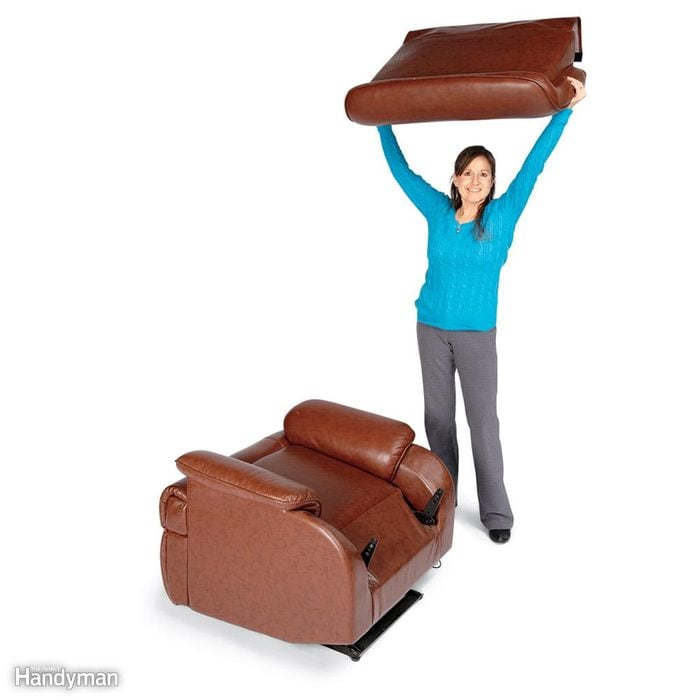
Take the Back Off a Recliner
Find the back brackets on the outside or inside of the back frame. Lift the locking levers on both sides (you may need to use long-nose pliers) and slide the back straight up to remove it from the recliner. Always lift a recliner from the sides, not by the back or footrest. Tie the footrest in place so it doesn't spring open.
12 / 14

Take Apart What You Can
When you're lugging a sofa through a doorway, remember: You can always make it a few inches smaller by removing the feet. The same principle applies to any piece of furniture you need to make sleeker or lighter: Take off any and all knobs, drawers, shelves, racks and legs.
13 / 14
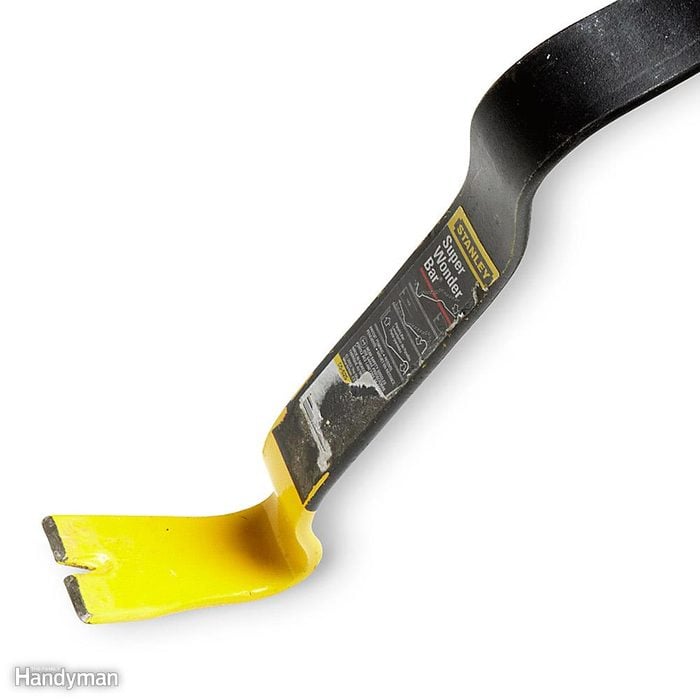
Remove Your Door Stop Molding
Sometimes, an extra 1/2 in. is all it takes to get through a doorway. If removing the door doesn't open up enough space, pry off the door stop molding. That will give you another 3/4 in.
14 / 14
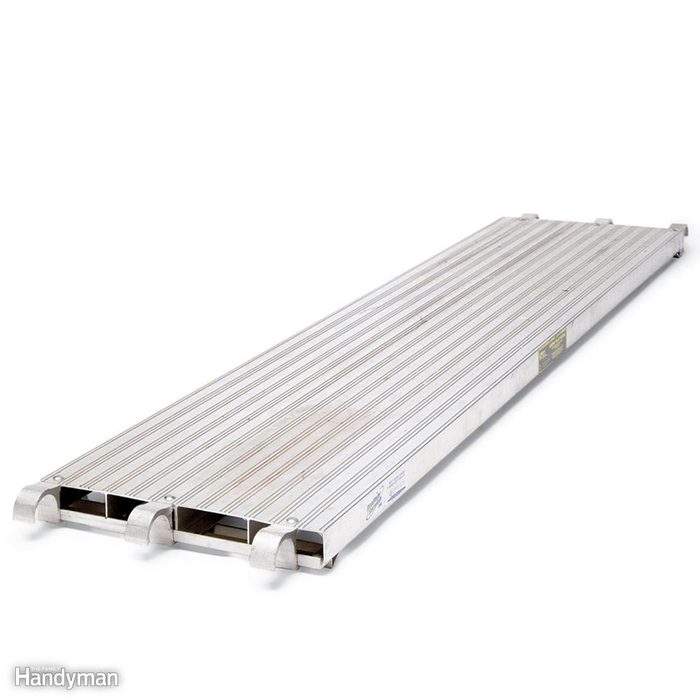
Ramp It Up (and Down)
Use lumber, scaffold planks and blocks to create ramps to maneuver items.
Originally Published: July 24, 2019
Source: https://www.familyhandyman.com/list/10-tips-for-moving-furniture/
Post a Comment for "Diy Easy Way to Slide Heavy Furniture"